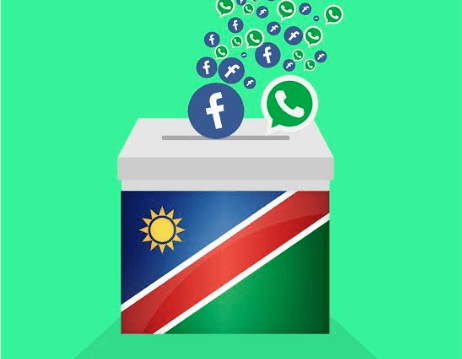Social media is convenient, but trust is low as a flood of false information confuses and upsets Namibian users and audiences.
Recently released Afrobarometer survey data indicates that Namibians distrust the information they receive via social media and the people who share such information.
According to Afrobarometer Round 8 results:
“Social media users are most frequently blamed as sources of false (fake) news (by 67% of respondents), followed by journalists (62%) and politicians (60%).”
– Afrobarometer
Despite this, most social media users still have a positive impression of social media, or as the Afrobarometer findings state:
“Among the three-fourths (76%) of adult Namibians who have heard of social media, half (51%) see its effects on society as positive, while one-fourth (24%) see them as negative.”
– Afrobarometer
These results speak to what Namibia Fact Check observed during a five-month study tracking election-related disinformation ahead of and after the 27 November 2019 presidential and National Assembly elections.
Among the findings were the following:
- From our observations it is clear that most political mis-/disinformation either emanates from groups or profiles on Facebook or WhatsApp, and there is a great deal of cross-posting of such content amongst groups on these two platforms;
- Mutual misinforming is prevalent across and in Facebook and WhatsApp groups. But especially in and among WhatsApp groups;
- Members of WhatsApp groups appear especially involved in or susceptible to sharing / for-warding mis-/disinformation, with those consistently demonstrating low levels of exposure to or engagement with traditional channels of receiving news and current affairs appearing the most susceptible;
- Many recipients, whether individually or in groups, when confronted with false content ap-peared unable to distinguish between credible information and sources and information or sources which were not credible;
- Most users who share mis-/disinformation content do not bother to attempt to verify the information they share and simply seem to ‘forward’ such content to as many groups as they can;
- Suspect or false information is forwarded / shared by many individuals in WhatsApp groups with the disclaimer ‘Forwarded as received’;
- It seems that the fact that some individuals suspect that the information they are sharing might be false does not dissuade them from forwarding / sharing such information.
To counter the spread of disinformation via social media and to stimulate more critical engagement with information received on such platforms, Namibia Fact Check proposed:
- That media and information literacy become a component stream in primary and secondary education curricula, as well as part of relevant tertiary level training initiatives.

